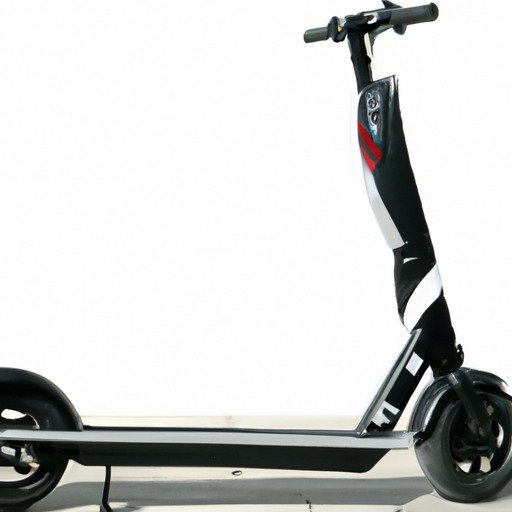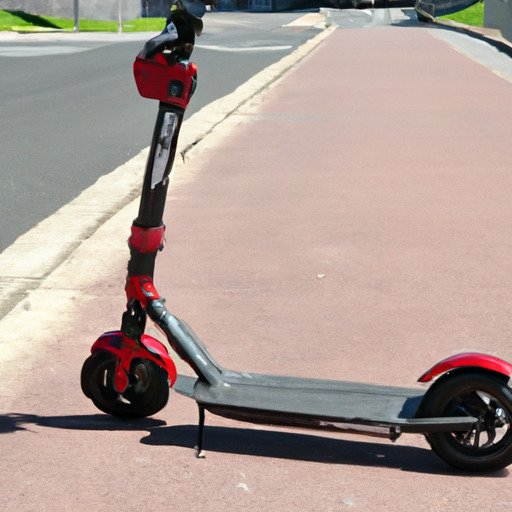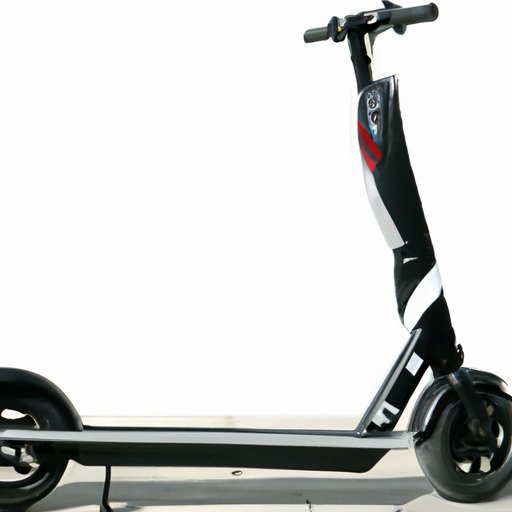
Curious about the consequences of getting caught riding an electric scooter in the UK? We’ve got you covered. In this article, we’ll dive into the potential penalties and legal implications for riding an electric scooter on public roads in the UK. From fines to points on your license, we’ll explore what could happen if you find yourself on the wrong side of the law while zipping around on an e-scooter. Stay tuned to find out more!
If you’ve ever wondered about the repercussions of riding an electric scooter in the UK, look no further. In this article, we’ll delve into the details of what could happen if you get caught riding one on public roads. With the rising popularity of these nifty little rides, it’s important to be aware of the legalities and potential penalties involved. So, if you want to stay informed and avoid any unexpected encounters with the authorities, keep reading to discover the ins and outs of riding an electric scooter in the UK, and what happens if you’re caught.

Legal Regulations for Electric Scooters in the UK
Electric scooters have become a popular mode of transportation in urban areas, providing a convenient and eco-friendly alternative to cars and public transport. However, it is essential to be aware of the legal regulations surrounding electric scooters in the UK to avoid any potential penalties or fines. In this article, we will discuss the rules and consequences of riding an electric scooter illegally, as well as provide tips to ensure a safe and compliant experience.
Introduction to the Legal Regulations
In the UK, electric scooters are classified as “Personal Light Electric Vehicles” (PLEVs) and are subject to specific regulations. These regulations are in place to ensure the safety of riders, pedestrians, and other road users.
Types of Electric Scooters Allowed in the UK
Not all electric scooters are legal to use on public roads and cycle lanes in the UK. To conform to the regulations, electric scooters must meet the following criteria:
- Maximum power output of 500 watts
- Maximum speed of 15.5 miles per hour (25 kilometers per hour)
- Equipped with functioning lights and reflectors
- Must not be used off-road
It is vital to check whether the electric scooter you own or plan to purchase meets these legal requirements to avoid any issues with law enforcement.
Age Restrictions for Riding Electric Scooters
To ride an electric scooter legally on public roads or cycle lanes in the UK, you must be at least 16 years old. It is essential to adhere to this age restriction to avoid any penalties.
Riding Electric Scooters on Public Roads
In the UK, riding an electric scooter on public roads is illegal unless it is part of a government-approved trial. As of now, only selected cities are participating in these trials, which allow e-scooters to be rented and used legally on designated paths. Therefore, riding an electric scooter on public roads outside of these trials can result in penalties.
Use of Electric Scooters on Cycle Lanes
Currently, electric scooters are not permitted on the majority of cycle lanes in the UK. However, during the government-led trials, some cycle lanes may be designated for e-scooter usage. It is crucial to check the specific rules of your area to determine whether electric scooters are allowed on cycle lanes.
Traffic Rules and Safety Guidelines for Riding Electric Scooters
When riding an electric scooter legally, it is essential to follow all traffic rules and safety guidelines. This includes:
- Always obeying traffic lights and signs.
- Riding in a considerate manner, especially around pedestrians.
- Maintaining a safe distance from other vehicles.
- Using appropriate hand signals when turning or changing lanes.
- Wearing a helmet and other appropriate safety gear.
Adhering to these rules not only ensures your safety but also contributes to creating a positive public perception of electric scooter usage.
Penalties and Fines for Riding Electric Scooters Unlawfully
If caught riding an electric scooter unlawfully in the UK, you may face penalties and fines. The exact consequences can vary depending on the circumstances and location, but here are some potential scenarios:
Possible Scenarios if Caught by Law Enforcement
Law enforcement officers have the authority to take various actions when they catch individuals riding electric scooters unlawfully. These actions can range from issuing a warning to more severe measures such as seizing the electric scooter and possibly prosecuting the rider.
Issuance of Warning or Verbal Reprimand
In some cases, law enforcement officers may choose to give verbal warnings or reprimands to individuals riding electric scooters illegally. While a warning may not result in immediate penalties, it is essential to take it seriously and comply with the regulations to avoid further consequences.
Fixed Penalty Notice for Riding Illegally
For more significant offenses, law enforcement officers may choose to issue a fixed penalty notice. This notice can result in a fine or points on your driving or riding license. The amount of the fine can vary depending on the severity of the offense.
Impact on Driving or Riding Licenses
Riding an electric scooter illegally can have implications on your driving or riding licenses. Accumulating points on your license due to electric scooter-related offenses may result in increased insurance premiums, license suspension, or even revocation in severe cases.
Risk of Higher Insurance Premiums
Engaging in illegal activities, such as riding an electric scooter unlawfully, can increase your risk profile as perceived by insurance companies. As a result, you may face higher insurance premiums or difficulty in obtaining insurance coverage for your other vehicles.
Potential Prosecution and Criminal Record
In extreme cases, individuals who repeatedly break the law by riding electric scooters illegally can face potential prosecution and acquire a criminal record. This can have long-lasting consequences, affecting job prospects, travel, and other aspects of life.
Imprisonment for Severe Offenses
Severe offenses, such as causing serious accidents or injuries while riding an electric scooter illegally, can lead to imprisonment. It is vital to prioritize safety and adhere to the regulations to avoid endangering yourself and others.
Tips to Avoid Getting Caught Riding an Electric Scooter Illegally
To ensure a safe and lawful electric scooter experience, consider the following tips:
Educate Yourself about the Regulations
Stay informed about the current regulations regarding electric scooters in your area. Regularly check for updates or changes to the rules to ensure compliance.
Purchase Electric Scooters Meeting Legal Requirements
Before purchasing an electric scooter, verify that it meets the legal requirements, including the maximum power output and speed limits.
Consider Joining E-Scooter Rental Schemes
Instead of owning a personal electric scooter, consider utilizing e-scooter rental schemes available in areas participating in government-led trials. These rentals provide a legal and convenient alternative for short-distance travel.
Adhere to Age Restrictions and Licensing Requirements
Ensure that you meet the age requirements and have the appropriate licenses to ride an electric scooter legally. This includes obtaining a valid driving or riding license if required.
Wear Appropriate Safety Gear While Riding
Prioritize your safety by wearing a helmet and other protective gear while riding an electric scooter. This helps reduce the risk of injuries in case of accidents or collisions.
Stay Informed about Changes in Regulations
Continuously stay updated on any changes or amendments to the regulations surrounding electric scooters. This knowledge will help you adapt your behavior accordingly and avoid legal consequences.
Be Cautious of Law Enforcement Presence
Keep an eye out for law enforcement officers while riding an electric scooter. This awareness allows you to respond appropriately and demonstrate compliance with the regulations if necessary.
Arguments for and Against Electric Scooters in the UK
Beyond the legal regulations and consequences, there are various arguments both for and against electric scooters in the UK.
Benefits of Electric Scooters in Urban Transportation
Proponents argue that electric scooters provide a convenient and efficient mode of transportation, particularly in congested urban areas. They offer a sustainable alternative to cars, reducing traffic congestion and carbon emissions.
Reduced Carbon Emissions and Environmental Impact
Electric scooters produce zero emissions, contributing to a cleaner environment and helping to combat air pollution. By promoting their usage, the UK can work toward achieving its sustainability goals.
Improved Accessibility and Last-Mile Connectivity
Electric scooters provide an accessible transportation solution, especially for those with limited mobility or limited access to public transport. They offer convenience for short trips, such as commuting to work or running errands.
Potential for Easing Traffic Congestion
By promoting electric scooter usage, the UK can potentially alleviate traffic congestion in cities. This, in turn, can lead to reduced travel times and increased efficiency in transportation systems.
Safety Concerns Related to Electric Scooter Usage
Opponents argue that the usage of electric scooters poses safety risks for both riders and pedestrians. With higher speeds than traditional bicycles and minimal protection for riders, accidents and collisions can result in severe injuries.
Pavement and Pedestrian Safety
The presence of electric scooters on pavements can pose risks to pedestrians, particularly the elderly or those with disabilities. The lack of clear regulations regarding riding locations and speeds can lead to conflicts in shared spaces.
Risk of Accidents and Collisions
With the increasing popularity of electric scooters, cities may experience a rise in accidents and collisions involving these vehicles. Shared roads and cycle lanes require careful navigation to mitigate the risks associated with different modes of transportation.
Conflicts with Existing Transportation Infrastructures
The integration of electric scooters into existing transportation infrastructures, such as bus lanes and cycle lanes, can lead to conflicts and disruptions. Balancing the needs and safety of various road users remains a challenge.

Public Opinion on Electric Scooters in the UK
Public opinion on electric scooters in the UK is still divided, with different perspectives from various stakeholders.
Views of Electric Scooter Riders
Many electric scooter riders appreciate the convenience and efficiency of this mode of transportation. They see electric scooters as a practical and eco-friendly means of getting around, particularly for short trips.
Feedback from Pedestrians and Cyclists
Pedestrians and cyclists often express concerns about electric scooters sharing their space. They highlight the importance of enforcement of regulations and responsible riding behavior to ensure the safety of all road users.
Community Perception and Acceptance
Some communities embrace electric scooter usage, viewing it as a forward-thinking solution to transportation challenges. However, others remain skeptical, focusing on the potential safety risks and disruptions to existing transportation systems.
Local Government and Public Response
Local governments play a crucial role in evaluating the benefits and challenges of electric scooter usage. They often conduct trials and pilot programs to gauge public response and assess the impact on transportation infrastructure.
Influence of Media and Public Awareness Campaigns
Media coverage and public awareness campaigns can significantly shape public opinion on electric scooters. Balanced reporting and informative campaigns contribute to a well-informed public and increased acceptance of new transportation options.
Current Initiatives and Trials for Electric Scooters in the UK
To better understand the implications of electric scooter usage, the UK government has initiated trials in select cities. These trials aim to evaluate the impact of electric scooters on transportation systems, monitor safety compliance, and assess the viability of potential future regulations.
Government-Led Trials in Select Cities
The UK government has allowed several cities to participate in trials to assess the feasibility and safety of electric scooters on public roads and cycle lanes. These trials provide valuable insights into potential regulations and their impact on urban transportation.
Partnerships with E-Scooter Rental Companies
To facilitate the trials, the government has partnered with e-scooter rental companies, allowing individuals to rent electric scooters from designated locations. These partnerships provide an opportunity for both the public and private sectors to collaborate in offering sustainable transportation options.
Evaluation of the Impact on Transportation Systems
The trials include evaluating the impact of electric scooters on existing transportation systems, including traffic flow, congestion, and user behavior. This data will help inform future regulations and infrastructure adaptations.
Monitoring of Safety and Regulatory Compliance
As part of the trials, safety and regulatory compliance of electric scooter riders are closely monitored. This data is used to assess the effectiveness of current regulations and identify areas for improvement.
Potential Expansion of E-Scooter Trials Across the Country
Depending on the results of the ongoing trials, the government may consider expanding the use of electric scooters to additional cities and regions. This expansion would be accompanied by further assessments and adjustments to ensure a safe and effective integration.
Comparative Analysis of Electric Scooter Regulations in Other Countries
Electric scooter regulations vary across countries, reflecting different approaches and priorities in urban transportation.
Overview of Electric Scooter Regulations in Europe
Many European countries have embraced electric scooters as part of their sustainable transportation solutions. While specific regulations vary, most European countries require electric scooters to adhere to certain speed limits and safety standards.
Comparison with Regulations in the United States
The United States has a more diverse regulatory landscape for electric scooters, with varying rules at the federal, state, and local levels. Some cities ban or heavily restrict electric scooter usage, while others have embraced it as a viable transportation option.
Different Approaches and Perspectives Worldwide
On a global scale, countries approach electric scooter regulations with different perspectives and priorities. Some prioritize safety, while others focus on promoting sustainable transportation options. Examining these different regulatory frameworks provides valuable insights for shaping future regulations in the UK.
The Future of Electric Scooters in the UK
As electric scooters continue to gain popularity, the future of their usage in the UK holds great potential. Several factors will shape the future of electric scooters in the country.
Potential Changes to Existing Regulations
Based on the outcomes of the ongoing trials, the UK government may introduce changes to the existing regulations to accommodate the safe usage of electric scooters on public roads and cycle lanes. These changes could include expanding the areas where electric scooters are permitted or modifying speed limits.
Integration of Electric Scooters into Transport Infrastructure
The integration of electric scooters into existing transport infrastructure remains an important consideration. Adapting cycle lanes and implementing designated paths for electric scooters can create a more harmonious coexistence between different modes of transportation.
Technological Advancements and Safety Innovations
Advancements in technology will likely contribute to improving the safety and usability of electric scooters. This may include features such as enhanced stability control systems, improved braking mechanisms, and advanced safety gear.
Economic and Environmental Impacts
The continued usage of electric scooters can have significant economic and environmental impacts. By reducing reliance on cars and public transport, electric scooters can help decrease traffic congestion, lower carbon emissions, and potentially stimulate the economy through job creation and technological advancements.
Public Perception and Acceptance
Public perception and acceptance of electric scooters will play a vital role in shaping their future in the UK. Continued public education and awareness campaigns can help alleviate concerns and increase acceptance of this emerging mode of transportation.
Summary: Legal Consequences and Future Prospects for Electric Scooters in the UK
Riding an electric scooter illegally in the UK can result in penalties and fines, ranging from warnings to imprisonment for severe offenses. Adhering to the regulations, staying informed, and prioritizing safety are crucial for a positive electric scooter experience.
Looking ahead, the future of electric scooters in the UK holds promise. The ongoing trials, evaluation of safety and regulatory compliance, and potential changes to existing regulations provide opportunities for environmentally friendly and sustainable urban transportation solutions. Public opinion and government initiatives will determine the long-term prospects of electric scooters in the country.
Conclusion
In conclusion, understanding the legal regulations surrounding electric scooters in the UK is vital to avoid penalties and fines. Knowing the types of electric scooters allowed, age restrictions, and rules for riding on public roads and cycle lanes is essential for a safe and compliant experience. Furthermore, being aware of the potential consequences of breaking the law, such as fixed penalties and impact on licenses, reinforces the importance of adhering to regulations.
To avoid getting caught riding an electric scooter illegally, educating yourself about the regulations, purchasing compliant electric scooters, considering rental schemes, adhering to age restrictions and licensing requirements, wearing appropriate safety gear, staying informed about changes in regulations, and being cautious of law enforcement presence are key tips to follow.
Electric scooters have both benefits and challenges, with reduced carbon emissions and improved accessibility being some advantages, while safety concerns and conflicts with existing transportation infrastructures present potential drawbacks. Public opinion on electric scooters in the UK is varied, with views from riders, pedestrians, and cyclists shaping the perception and acceptance of this mode of transportation.
Current initiatives and trials in the UK, along with comparative analysis of electric scooter regulations in other countries, provide insights into the future prospects for electric scooters. Potential changes to existing regulations, integration into transport infrastructure, technological advancements, economic and environmental impacts, public perception, and government initiatives will shape the future of electric scooters in the UK.
In summary, understanding the legal consequences, being aware of the regulations, and considering the future prospects of electric scooters are crucial for a safe, lawful, and forward-thinking electric scooter experience. By staying informed and following the guidelines, you can contribute to a positive and sustainable urban transportation environment.























